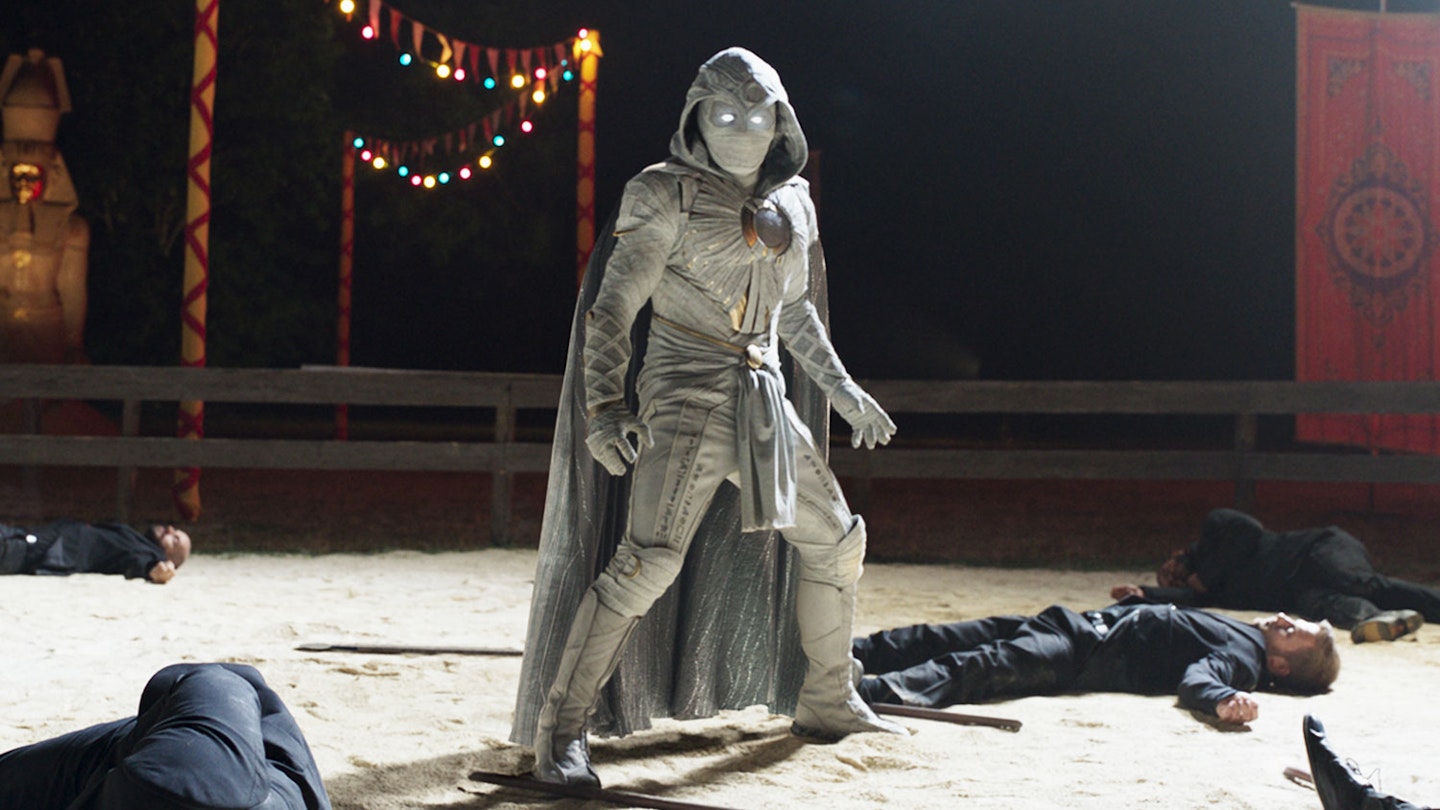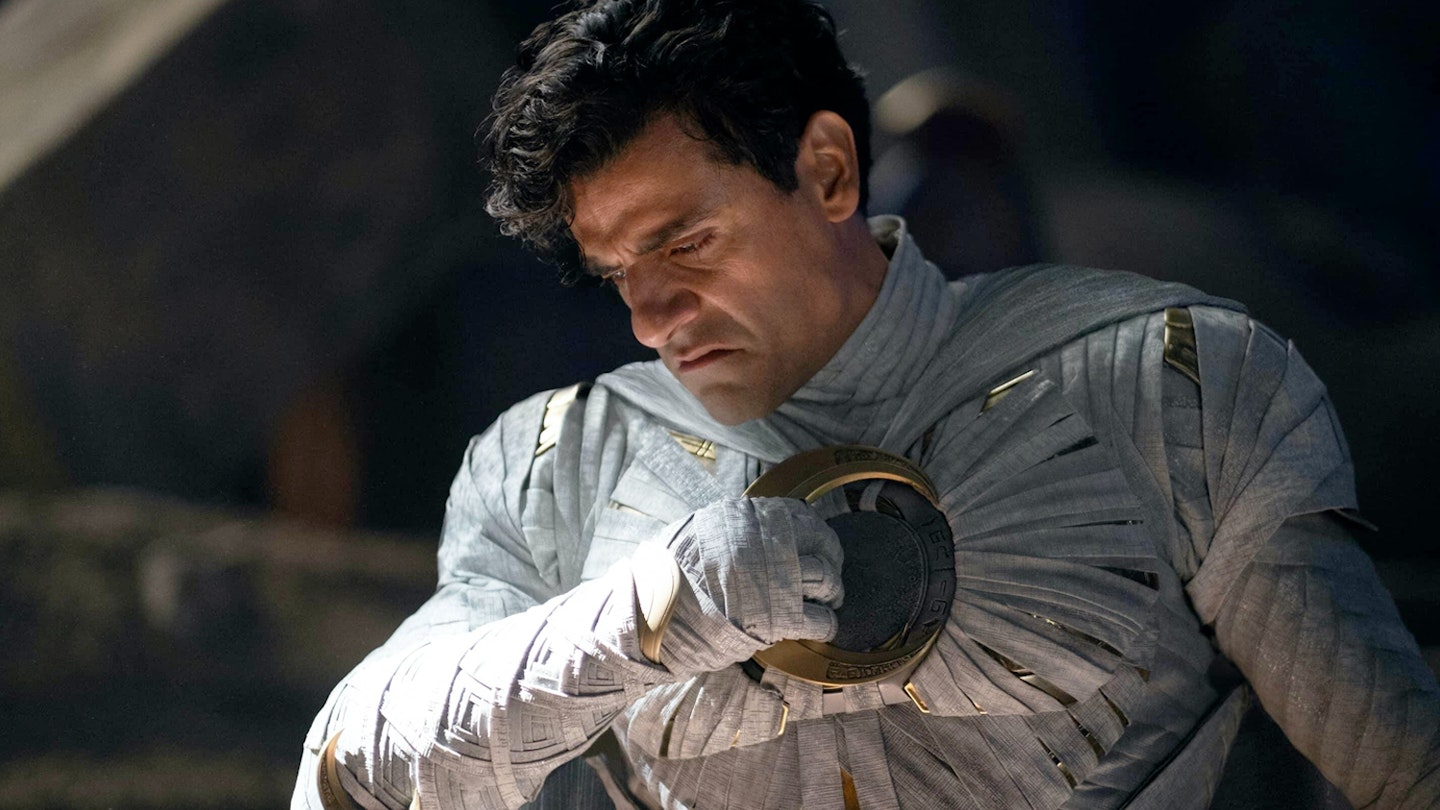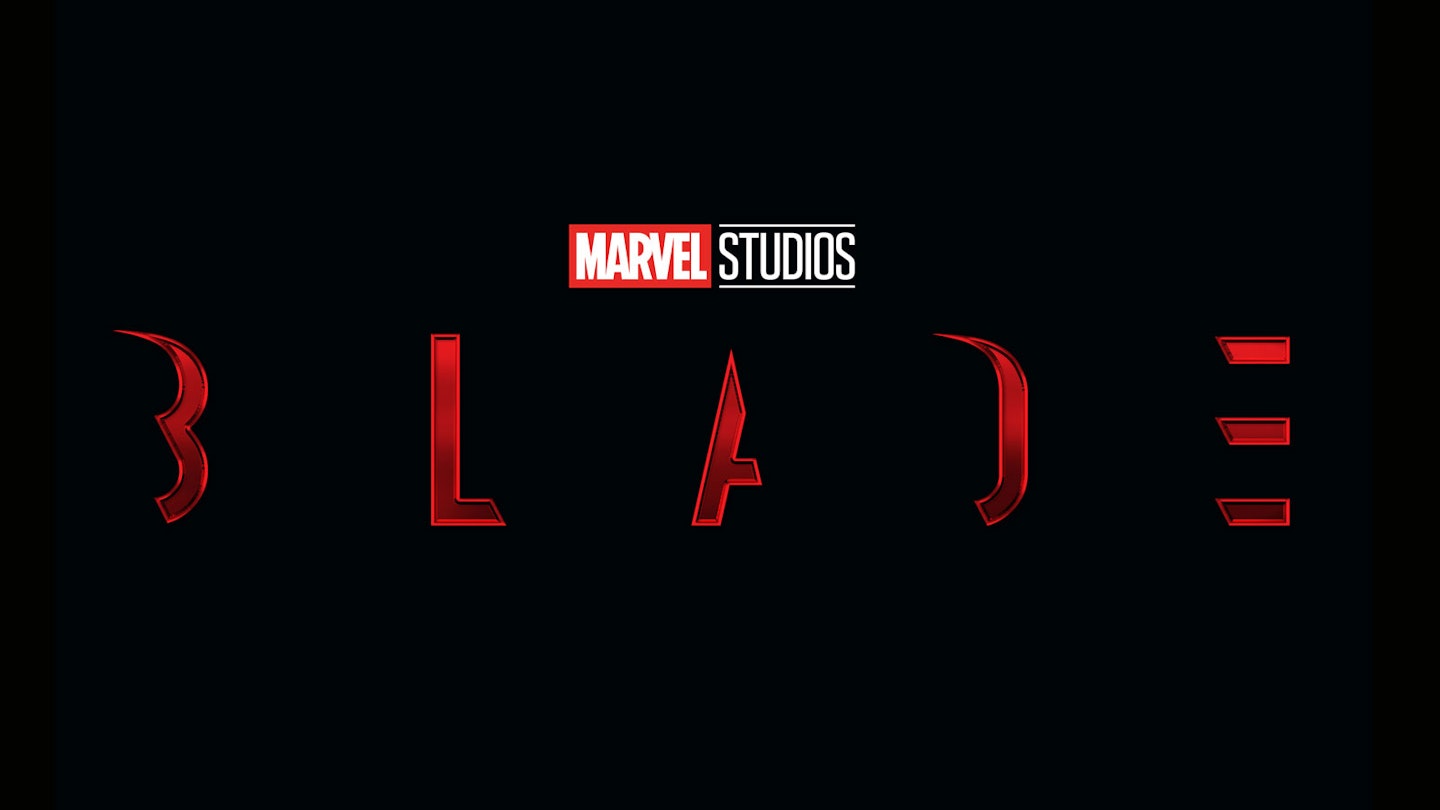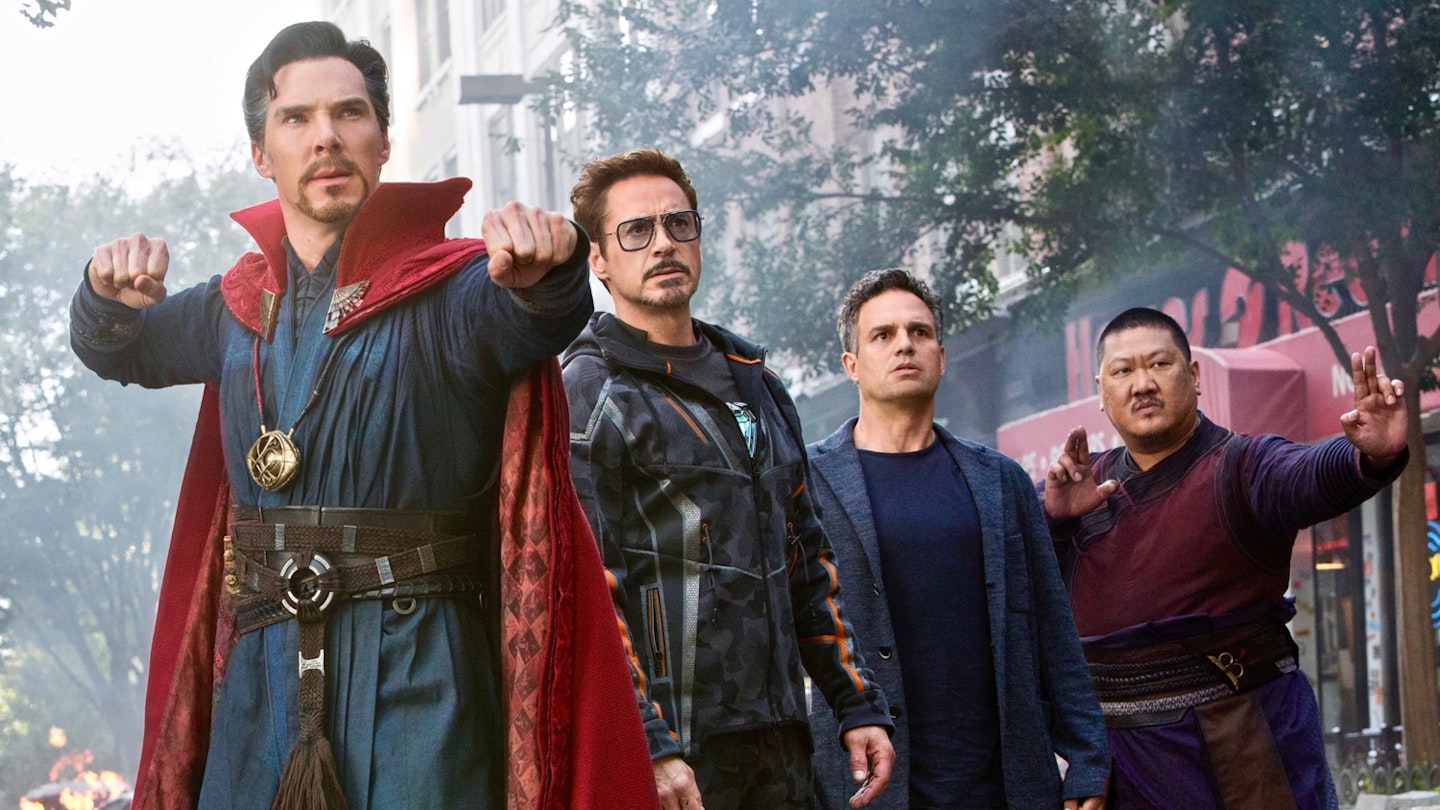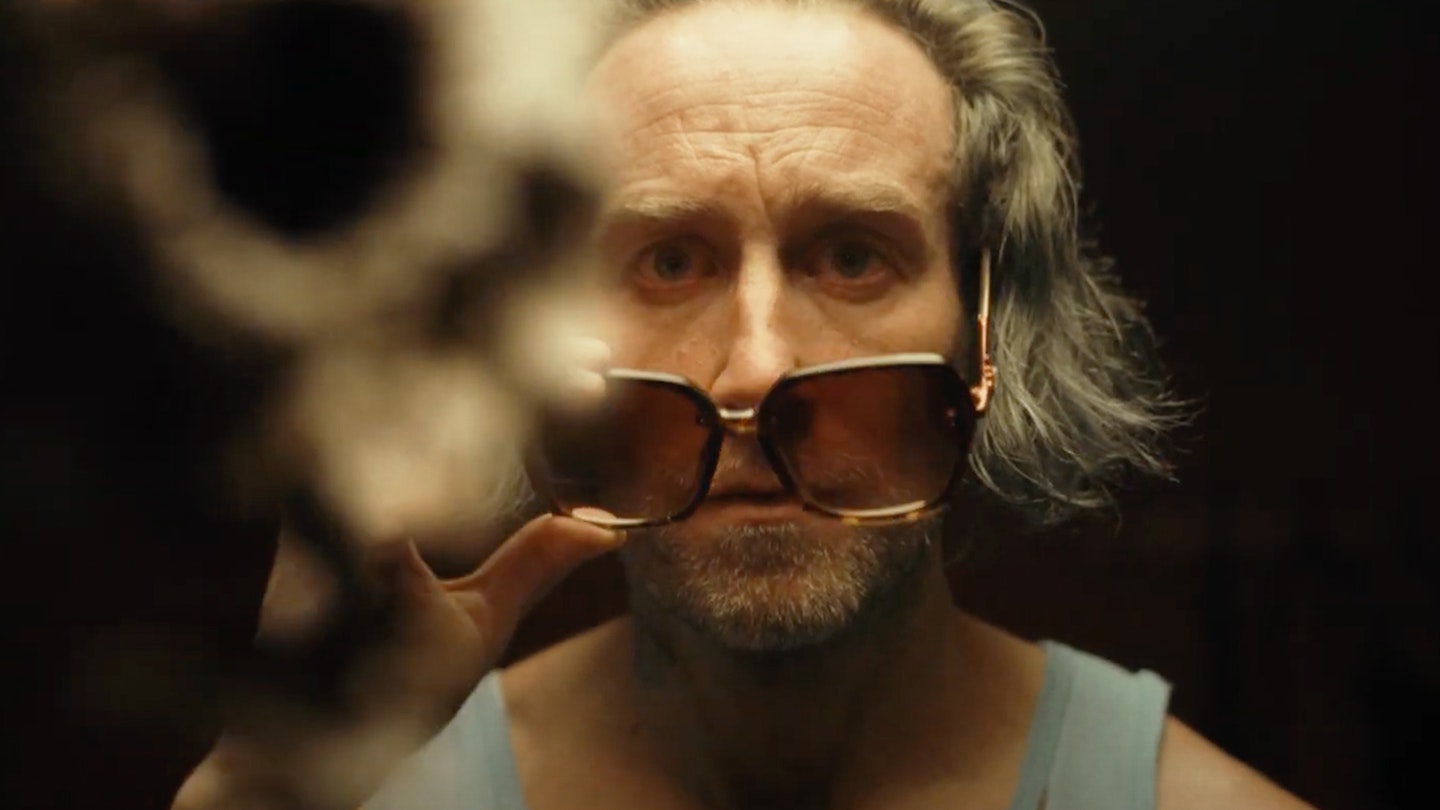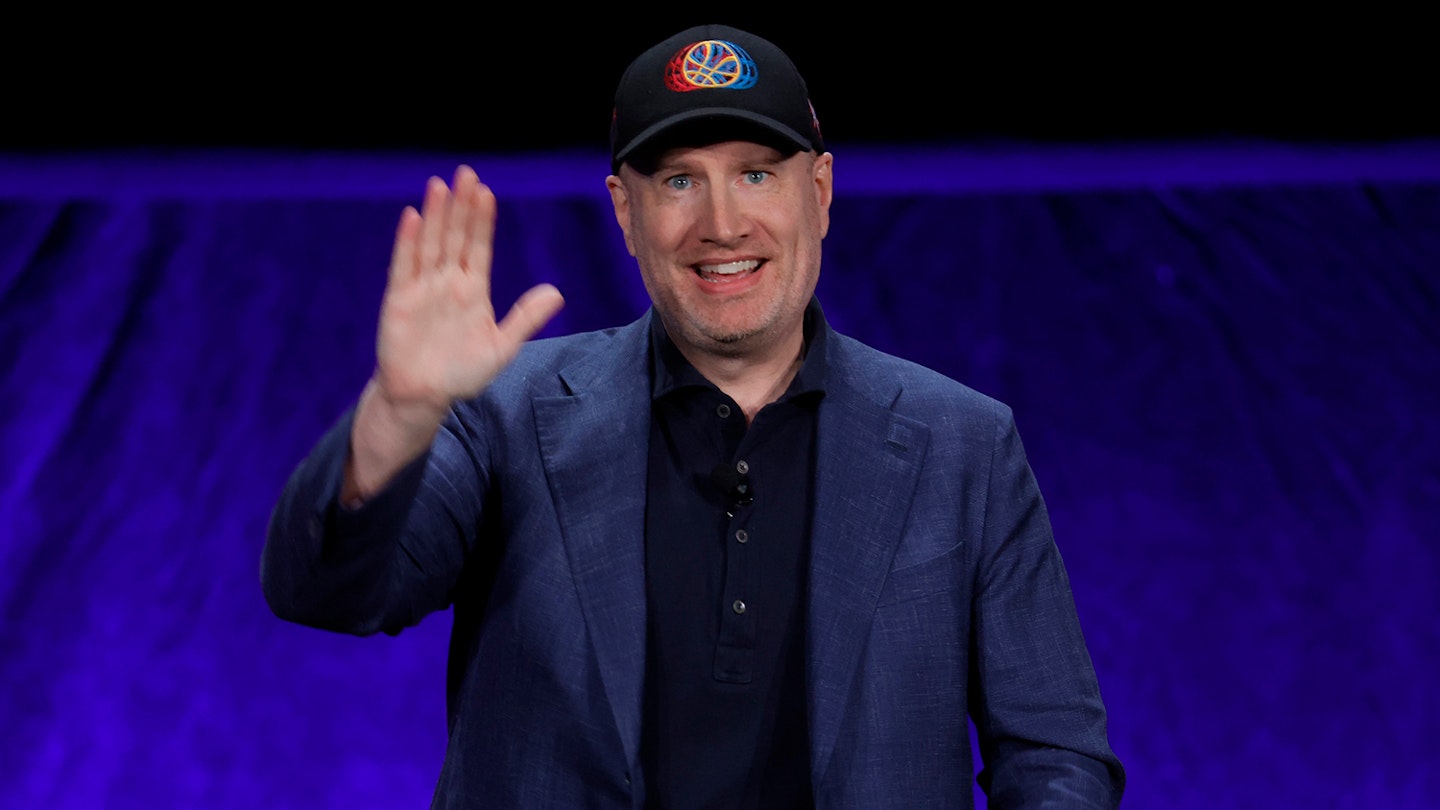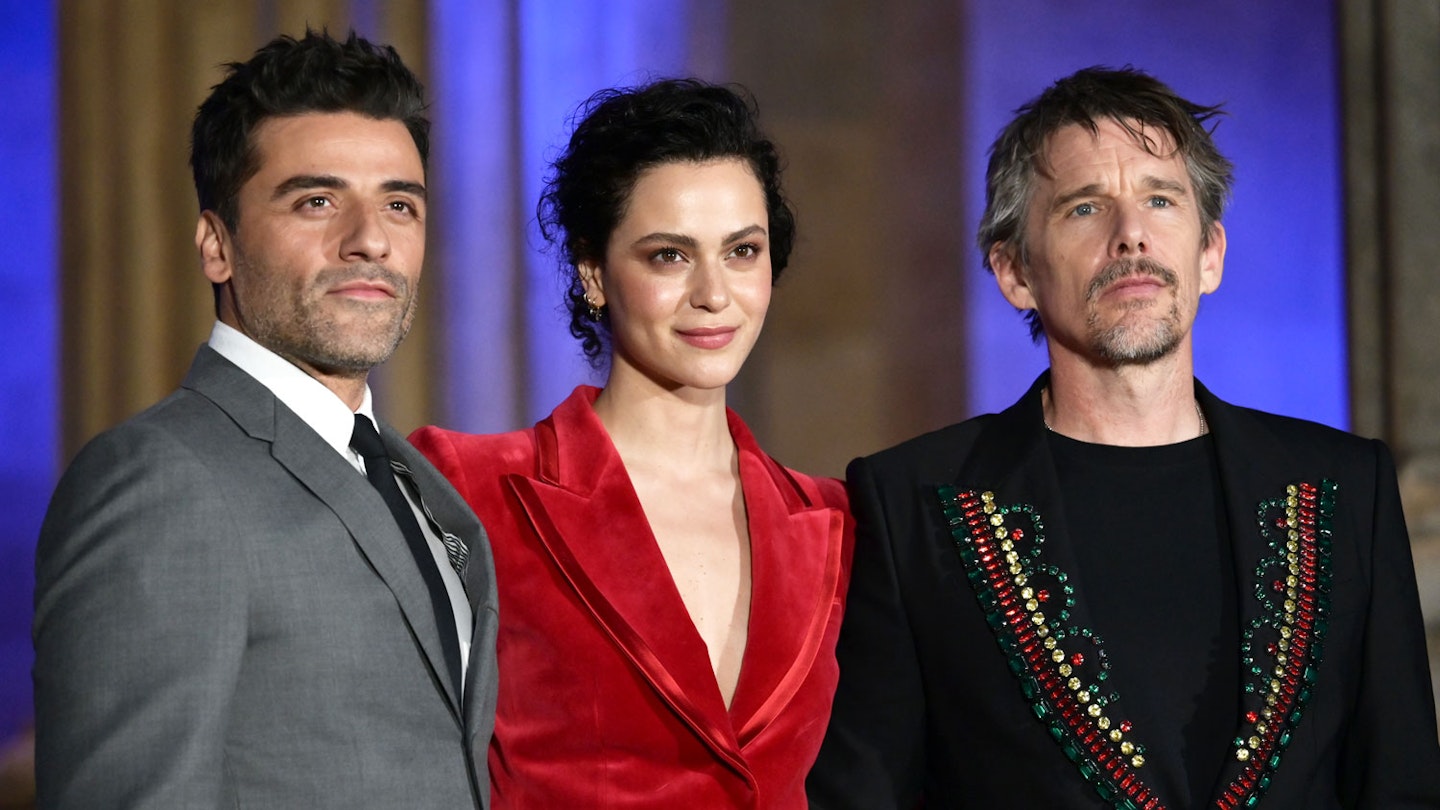Streaming on: Disney+
Episodes viewed: 4 of 6
Karl Pilkington is not, we might argue, the most obvious place to look to when bringing a Marvel superhero to life. And yet, that’s precisely the inspiration Oscar Isaac has cited when conjuring Moon Knight’s hapless alter ego: bumbling tat-peddler Steven Grant. A significant shift from the comics’ Grant (a genius, billionaire, playboy, philanthropist — you know the type), Isaac’s iteration trades suave sophistication for maladroit blundering, topped off by a highly mannered (and internet-maligned) accent.
What’s remarkable, however, is not that this six-part series is Marvel’s take on An Idiot Abroad, but that Isaac’s Grant very quickly establishes himself as the show’s — and possibly the whole of Phase Four’s — most joyous new addition. From the moment we meet him, absently feeding a one-finned goldfish while leaving his mum a voicemail (“Laters, 'gators!”), before being soundly bollocked for workplace tardiness by eye-rolling line-manager Donna (Lucy Thackeray), Steven is effortlessly, almost preternaturally charming. His north-east London tenor (an affectation of Isaac’s own design) not only helps the oft-farcical comedy squarely land, but lends him an irresistible affability that underpins the entire series. So much so, in fact, that when vastly more competent alter-ego Marc Spector periodically emerges, it’s oddly disappointing, leaving you counting down the minutes until Steven’s ungainly return.

Because shopboy Steven is more than he appears. Suffering from dissociative personality disorder, he is the more mundane persona of Spector’s hard-bitten mercenary. As Marc, he’s blessed with Bourne-level combat skills and a second job MoonKnighting as an instrument of vengeance for Khonshu, an Egyptian moon god with the skull of a bird and the voice of F. Murray Abraham. Through the course of the show’s first two episodes, the pieces of Steven/Marc’s personality puzzle slowly come together, gradually revealing not only his complex personal history, but a mass-murdering plot by Ethan Hawke’s Arthur Harrow, a charismatic cult- leader and agent of rival deity Ammit.
_Moon Knight_ is – four episodes in – a boldly bonkers affair that manages to capture the same giddy joy imbued in _Hawkeye_ and _Loki_.
As far as set-ups go, it’s as far from the traditional hero origin story as Moon Knight himself is from the traditional hero. Batman might be vengeance, but even he is bound by a (somewhat impractical) no-kill code. Khonshu’s assassin, on the other hand, has no such inhibitions and will happily murderise anyone that gets in his way with wild and bloody abandon. The split personas of Steven/Mark also (in a delightful touch) have distinct looks while wearing the cape: Marc’s Knight being is the traditional cowled figure of lore, while Steven’s sports a white mask, gloves and three-piece-suit, appearing like the love child of Paul Daniels and The Stig.

It’s when we transition from Moon Knight-at-the-museum hijinks (a running fight with an invisible devil dog, which spills from the exhibit hall onto the streets of London, is a standout) to more Indiana Jones-style globetrotting that Moon Knight begins to wobble. Much of the third episode is spent in search of something that has already been found, the plot becoming nebulous and occasionally hard to follow. Meanwhile, May Calamawy’s Layla El-Faouly — a blast from Spector’s past — feels like an afterthought. However, the fourth instalment brings things back to clarity, with a dose of old-school action-horror reminiscent of Stephen Sommers’ The Mummy, harking back to Moon Knight’s horror-comic roots before setting up some mind-bending internal escapades that carry hints of Noah Hawley’s Legion.
Marvel’s first TV series in this new MCU-integrated era to introduce a new headline character, Moon Knight is – four episodes in – a boldly bonkers affair that manages to capture the same giddy joy imbued in Hawkeye and Loki. In taking a relatively obscure character and leaning into his more eccentric elements, writer Jeremy Slater (Fantastic Four, The Umbrella Academy) has delivered something that feels genuinely different from any corner of the MCU yet explored — somehow managing to make Egyptian gods canon in the process. Not everything runs smoothly, and the larger narrative is at times less compelling than the quirky character work. But thanks to the inspired inception of Isaac’s Steven Grant, and a story that judiciously places the central character’s humanity on a level with his heroics, Marvel’s newest addition shoots for the moon and largely hits its mark.
